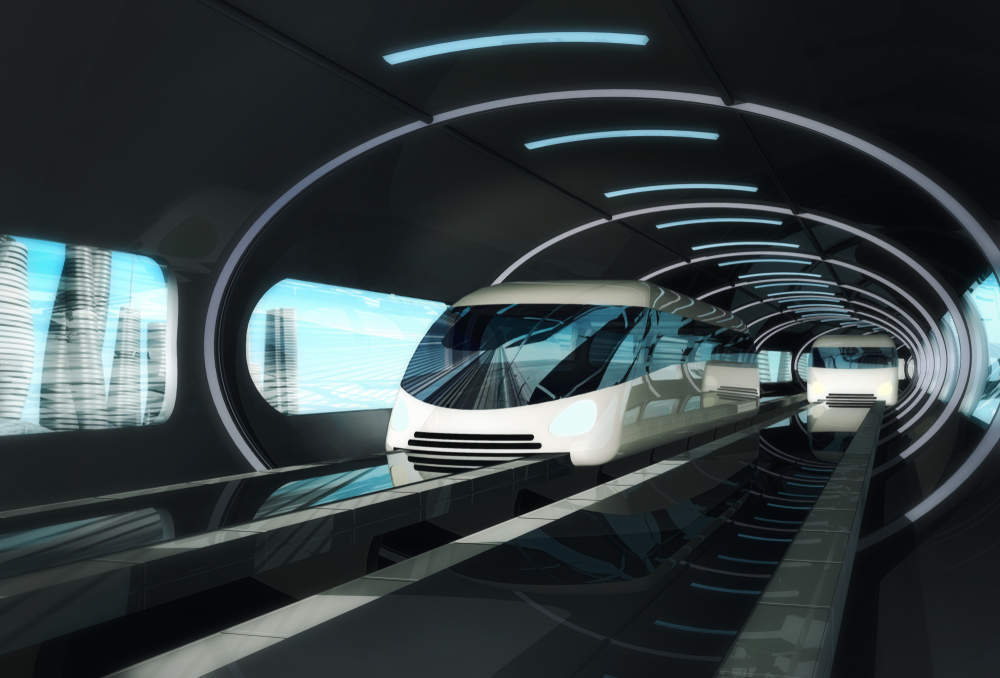
Elon Musk’s Boring Company has won a bid to build a high-speed express train to Chicago’s O’Hare International Airport, providing extra credibility to the company’s ambitious plans to build hyperloop transport systems in Washington and Los Angeles.
The infrastructure and tunnel construction company beat off competition from a consortium that reportedly included a civil engineering firm Mott MacDonald and JLC Infrastructure, an impressive feat for a company that is just 18 months old.
The privately funded project aims to bypass congestion by creating a high-speed tunnel under the city. Estimates suggest that the 18-mile journey could be cut from about 40 minutes to just 12. The Chicago bid is reportedly worth hundreds of millions of dollars, with the cost of the transport link expected to run into the hundreds of billions.
At present, it is unclear what technology the high-speed airport link would involve, although Musk’s tweets last year suggested “electric pods” and “rails maybe, maybe not”.
The city of Chicago is yet to formally announce the news, but the Boring Company confirmed the agreement on Twitter, saying, “We’re really excited to work with the Mayor and the City to bring this new high-speed public transportation system to Chicago!”
We’re really excited to work with the Mayor and the City to bring this new high-speed public transportation system to Chicago! https://t.co/cL1e0YfZSw
How well do you really know your competitors?
Access the most comprehensive Company Profiles on the market, powered by GlobalData. Save hours of research. Gain competitive edge.
 Company Profile – free sample
Company Profile – free sampleThank you!
Your download email will arrive shortly
Not ready to buy yet? Download a free sample
We are confident about the unique quality of our Company Profiles. However, we want you to make the most beneficial decision for your business, so we offer a free sample that you can download by submitting the below form
By GlobalData— The Boring Company (@boringcompany) June 14, 2018
A Boring Company spokesperson said:
“We’re very excited to work with Mayor Emanuel and the City of Chicago on a new high-speed mass transit system.”
Chicago is a boost for the Boring Company
Musk formed the idea in December 2016 while stuck in a traffic jam in Chicago. Winning the Chicago bid will provide some positive publicity for Musk the day after Tesla announced it would be laying off about 9% of its workforce in a company restructure after struggling to make a profit.
It will also provide legitimacy to his bold plans to build a hyperloop tunnel between San Fransisco and Los Angeles, carrying travellers in pods speeding at 700mph in a partial vacuum using magnetic levitation. Previously critics have cast doubts on the economic, engineering and regulatory viability of the concept.
In October 2017, Musk’s Hyperloop received “significant investment from the Virgin Group founder Richard Branson, leading to a rebrand of the company to Virgin Hyperloop One. Recently, vice president of Virgin Hyperloop One Colin Rhys suggested that the early stages of the hyperloop could be implanted in Europe within the next three years.







